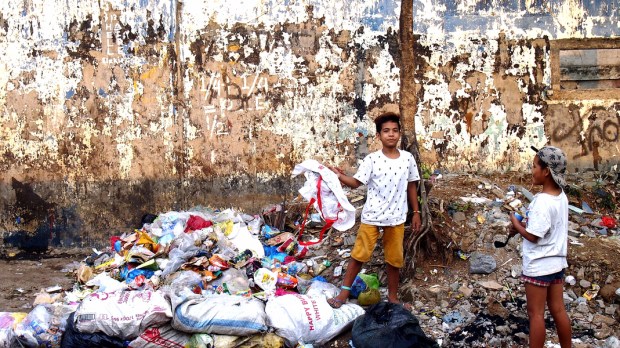Cooperation among the government, the Church and society are needed in the Philippines to solve the ongoing problem of child labor, a Catholic bishop in that country said.
Complex factors drive children into dangerous working conditions, said Bishop Roberto Mallari of San Jose, according to the Catholic Bishops Conference of the Philippines’ news website. When families and societies cannot provide a safe environment and basic necessities, to which all children have a right, kids in poor families are forced into dangerous situations, said Mallari, who is chairman of the bishops’ Commission on Catechism and Catholic Education.
“The root of this sad reality is poverty and lack of livelihood options which leads the child to contribute to the family income,” the bishop said. “The situation of the suffering children and those who are deprived of their rights and dignity leave a great challenge to us as a Church and as a society.”
Mallari was reacting to a Philippine government report that profiled 7,000 child laborers. The report, issued by the Department of Labor and Employment, found that the majority of the children work as vendors or helpers (65.3%) while others are engaged in waste management (24.3%), construction (3.7%), transportation and storage (3.2%), domestic work (2.0%), and manufacturing (1.5%), the Manila Bulletin reported. The report showed that 24% of the child laborers were not attending school.
The government has introduced a plan to combat child labor and says it hopes to reduce the numbers of working children in the country by 30% by 2022, according to Catholic News Agency:
It is estimated that there are more than 2 million child laborers in the Philippines. The International Labor Organization said a 2011 study from the country found that about 95% of child laborers were engaged in hazardous work. The U.S. government reported that “the Philippines made a moderate advancement in efforts to eliminate the worst forms of child labor” in 2018. It noted that the nation’s government had begun a process of profiling child laborers and introduced guidelines to remove them from child labor and connect them with the services they need. However, the U.S. Department of Labor warned, children in the Philippines are still forced into sexual exploitation and drug trafficking, as well as dangerous work in gold mining and agriculture. “In addition, the enforcement of child labor laws remains challenging, especially due to the limited number of inspectors, lack of resources for inspections, and inspectors’ inability to assess penalties,” the Department of Labor found.
“God entrusted to us His beloved children,” Bishop Mallari said. “Ours is a task of taking care of them and be with them in their values formation.”

